Management/Leadership Strategies and Styles
1/25
There's no tags or description
Looks like no tags are added yet.
Name | Mastery | Learn | Test | Matching | Spaced | Call with Kai |
|---|
No study sessions yet.
26 Terms
Discuss common traits of an effective leader and manager: What are the (5) qualities of an effective leader?
Modeling
Mentoring
Motivating
Monitoring
Multiplying success
Discuss common traits of an effective leader and manager: Describe the quality of Modeling
employees will model the roles leaders exhibit
Discuss common traits of an effective leader and manager: Describe the quality of Mentoring
teaching other employees on the workings of the org, guiding their development
Discuss common traits of an effective leader and manager: Describe the quality of Motivating
to be responsible for their performance with the org
Discuss common traits of an effective leader and manager: Describe the quality of Monitoring
to ensure that the org remains efficient and effective
Discuss common traits of an effective leader and manager: Describe the quality of Multiplying success
when individuals are given responsibility for and control of their own work, they are more likely to work toward improving the organization
Discuss common traits of an effective leader and manager: Other than the hallmark 5 leadership qualities, what are the other qualities (from the slides) that an effective leader can have
vision, integrity, communicating a vision, commitment, positive attitude, confidence, character, passion, honesty
Assess individual roles in developing management strategies: Leadership roles for pharmacy students and pharmacists
being an officer in local, state, and/or national pharmacy organizations
community leadership in organizations, public health initiatives, political involvement
providing disease management services, ie. BP and glucose screenings
Assess individual roles in developing management strategies: What are the 4 levels of Leadership Development?
Leading leader
Learned leader
Latent leader
Limited leader
Assess individual roles in developing management strategies: Describe a Leading leader
born with leadership qualities
Assess individual roles in developing management strategies: Describe a Latent leader
not yet apparent, but very capable
Assess individual roles in developing management strategies: Describe a Limited leader
little to no exposure to leadership
Evaluating different leadership and management styles based on various pharmacy-specific scenarios: What are the 6 types of leadership styles?
Affiliative
Autocratic
Democratic
Laissez-faire
Transformational
Servant
Evaluating different leadership and management styles based on various pharmacy-specific scenarios: Describe the Affiliative leadership style
forging relationships, team building
Evaluating different leadership and management styles based on various pharmacy-specific scenarios: Describe the Autocratic leadership style
independent decision making
Evaluating different leadership and management styles based on various pharmacy-specific scenarios: Describe the Democratic leadership style
facilitate input from members of organizations
Evaluating different leadership and management styles based on various pharmacy-specific scenarios: Describe the Laissez-faire leadership style
provide resources, but little direction
Evaluating different leadership and management styles based on various pharmacy-specific scenarios: Describe the Transformational leadership style
societal and spiritual values to bolster performance and motivation
Evaluating different leadership and management styles based on various pharmacy-specific scenarios: Describe the Servant leadership style
meet the needs of those they lead and help them grow
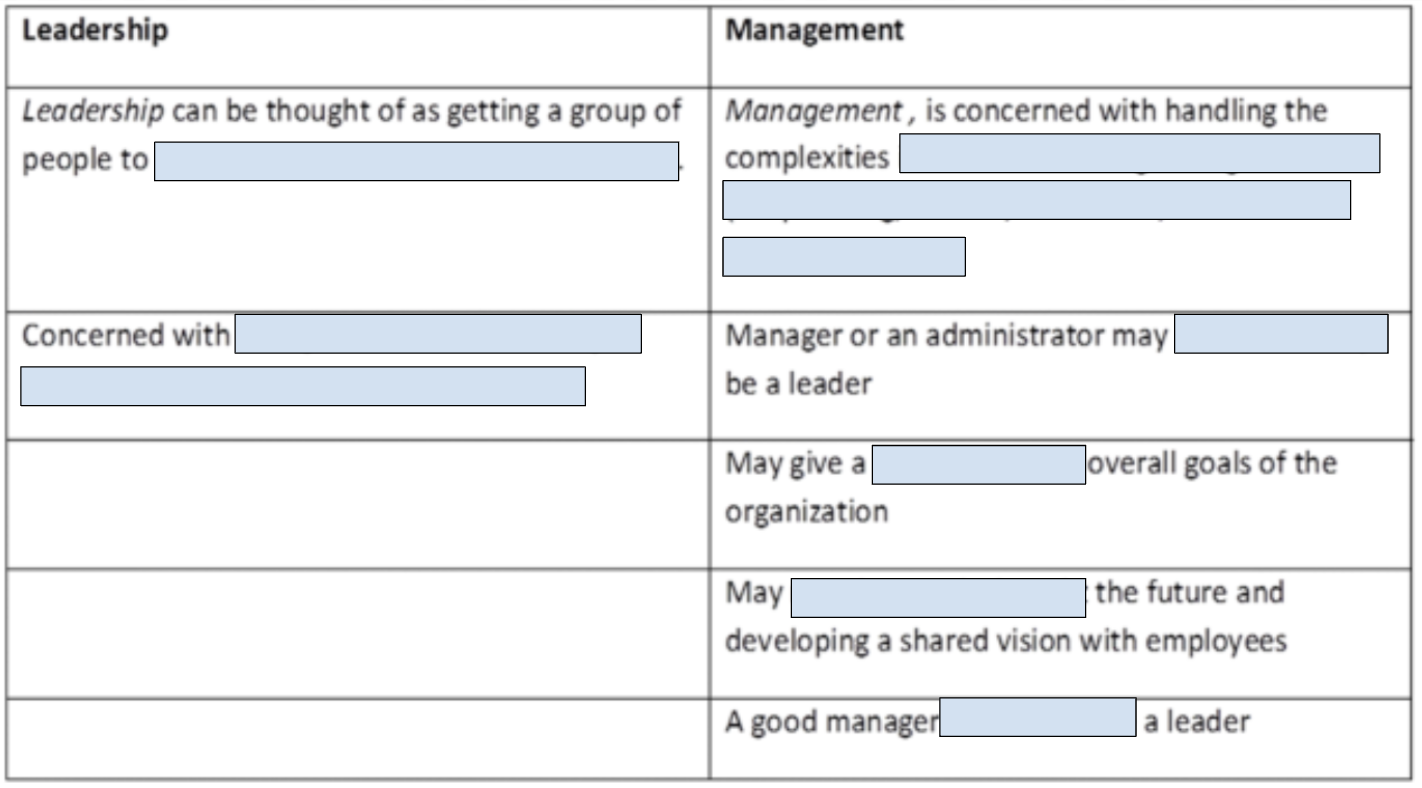
Leadership vs. Management: Leadership can be thought of as getting a group of people to….
Leadership can be thought of as getting a group of people to move toward a particular vision or ideal
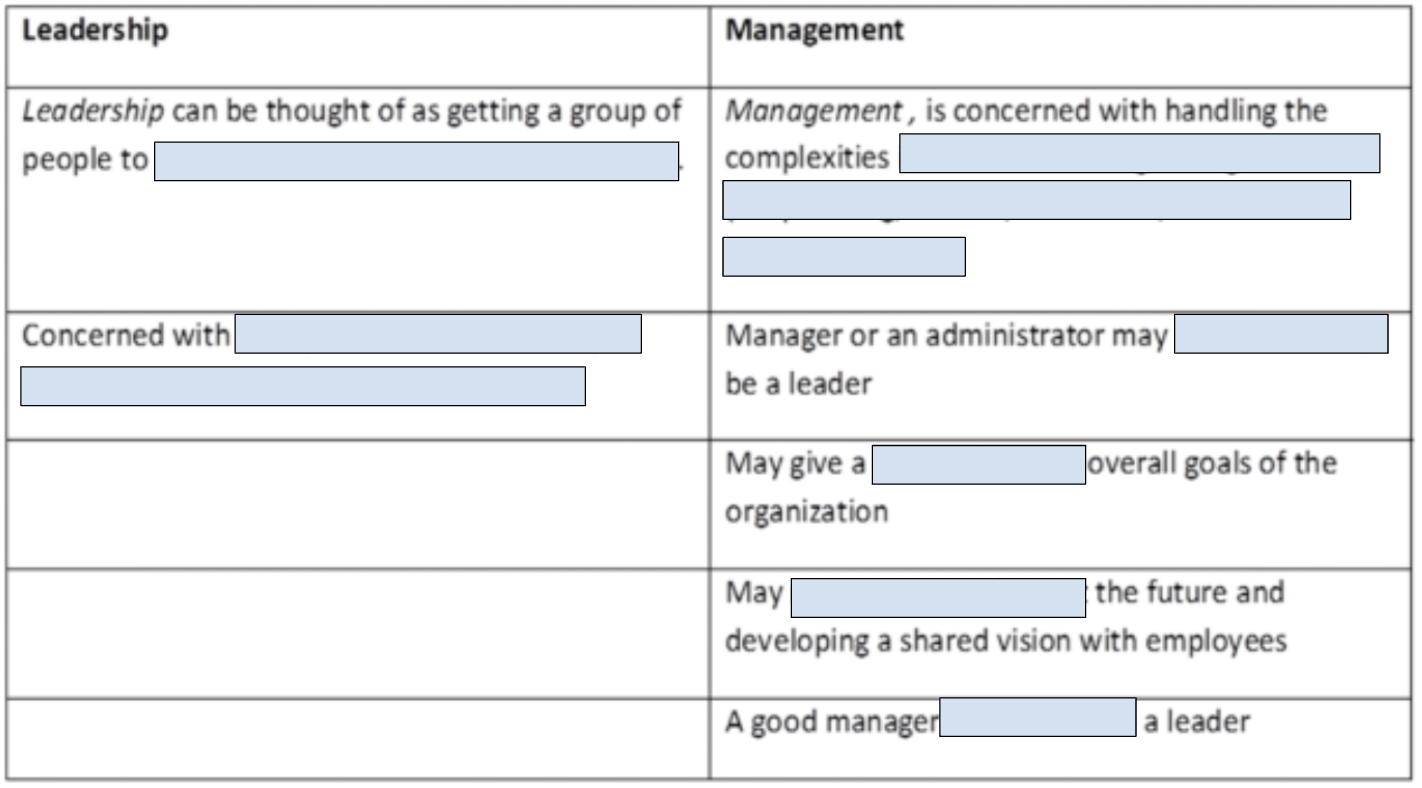
Leadership vs. Management: Leaders are concerned with…
Leaders are concerned with change and with motivating employees to move toward a shared vision
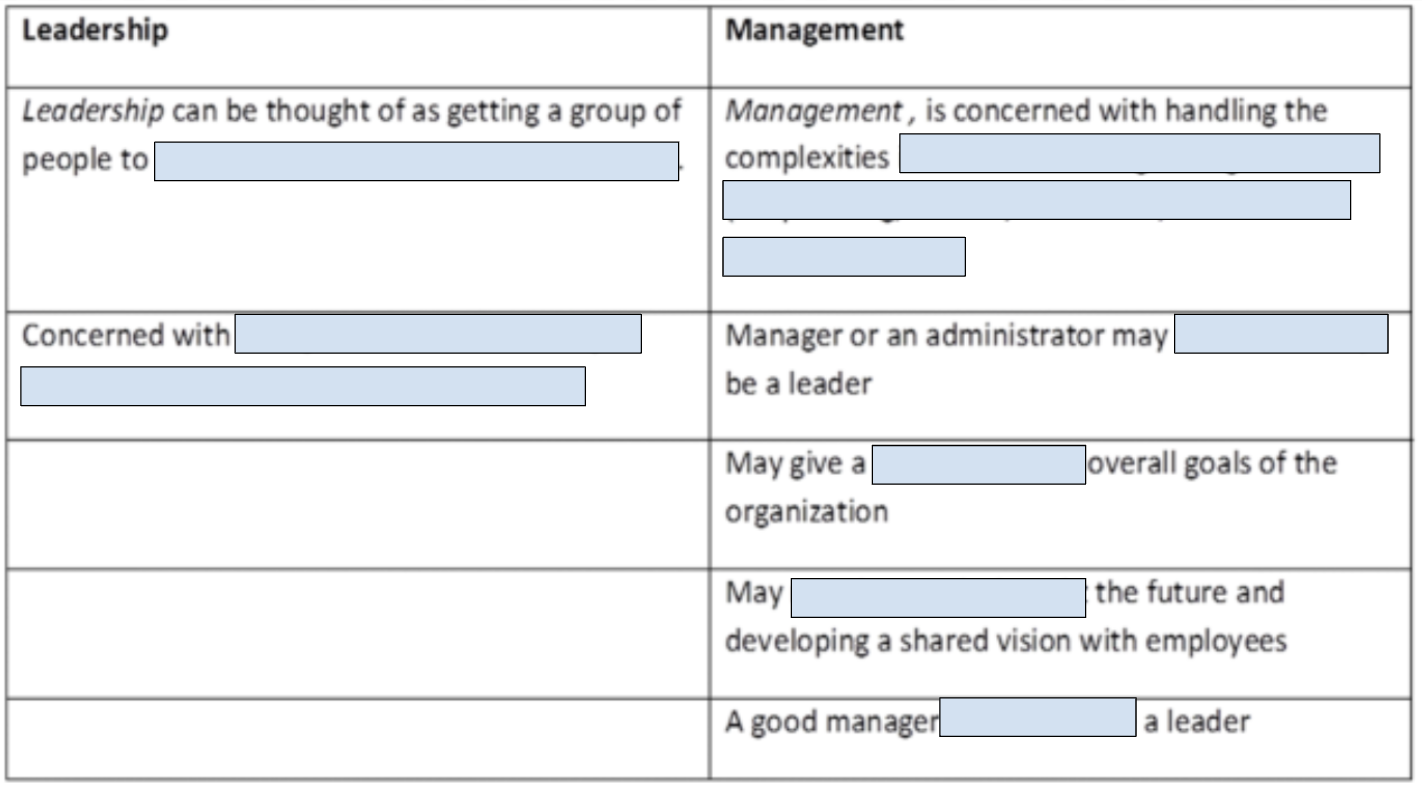
Leadership vs. Management: Management is concerned with….
Management is concerned with handling the complexities involved in running an organization (ie. planning, control, evaluation, and financial analysis)
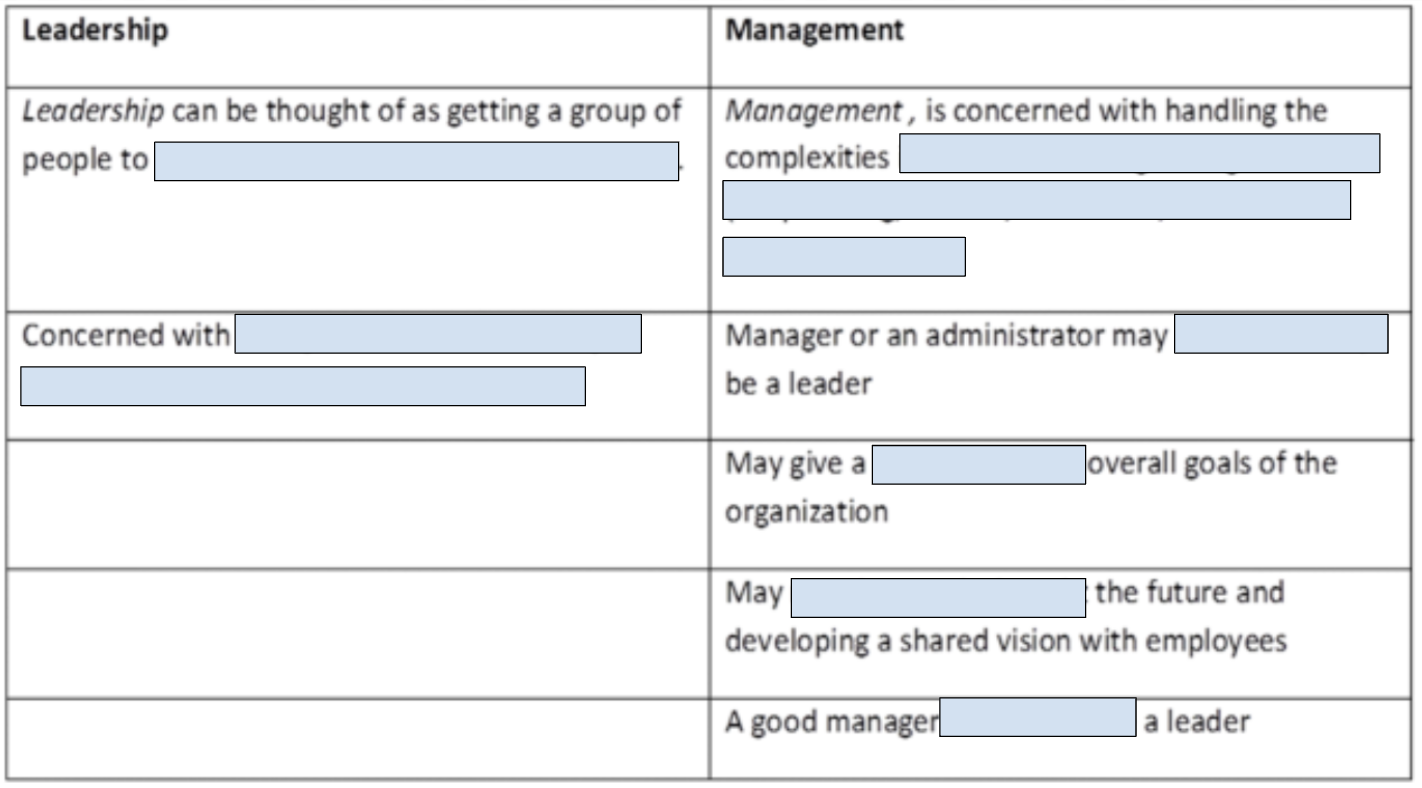
Leadership vs. Management: Managers or administrators may _______ be a leader
Managers or administrators may not necessarily be a leader
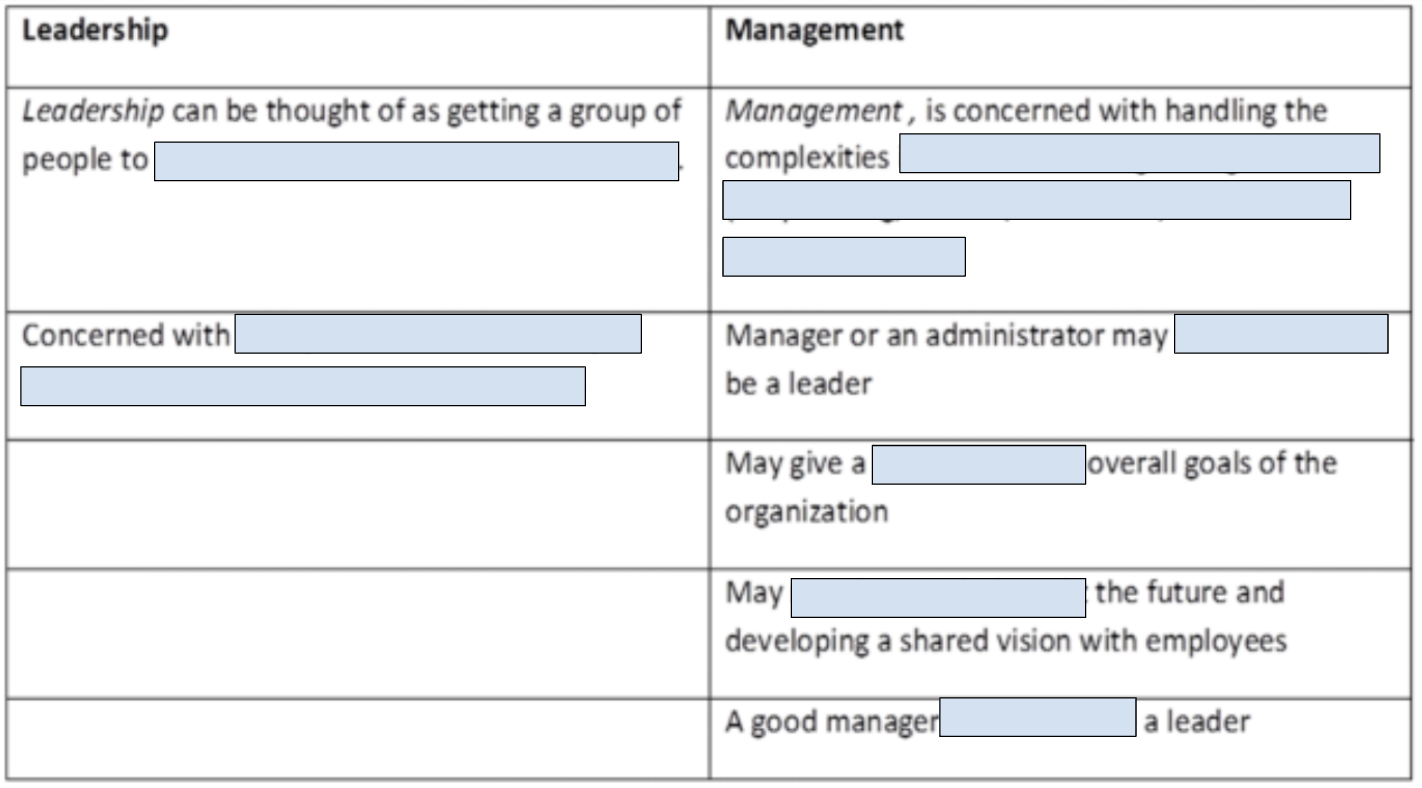
Leadership vs. Management: Management may give _________ to overall goals of the organization
Management may give little thought to the overall goals of the organization
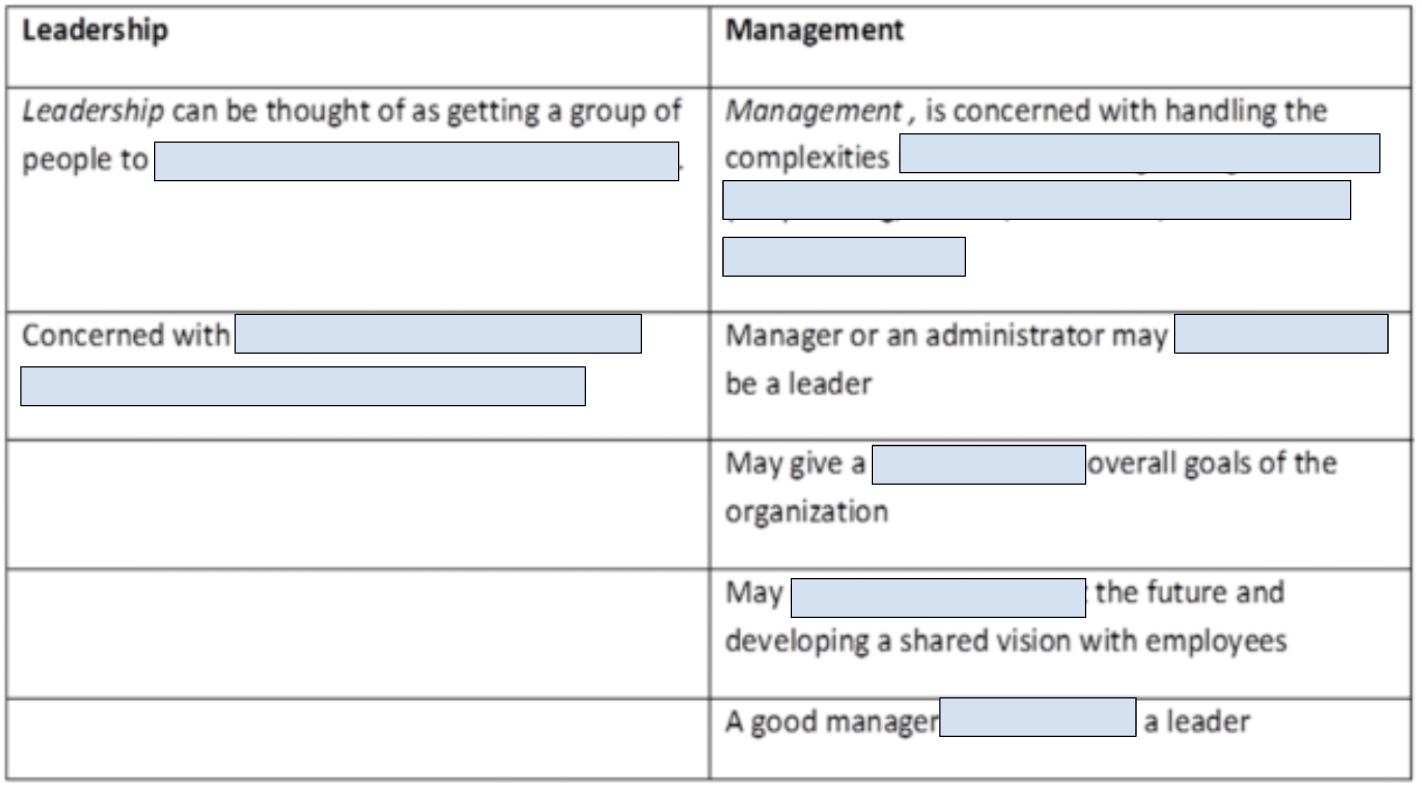
Leadership vs. Management: Management may __________ the future and developing a shared vision with employees
Management may not give much thought to the future and developing a shared vision with employees
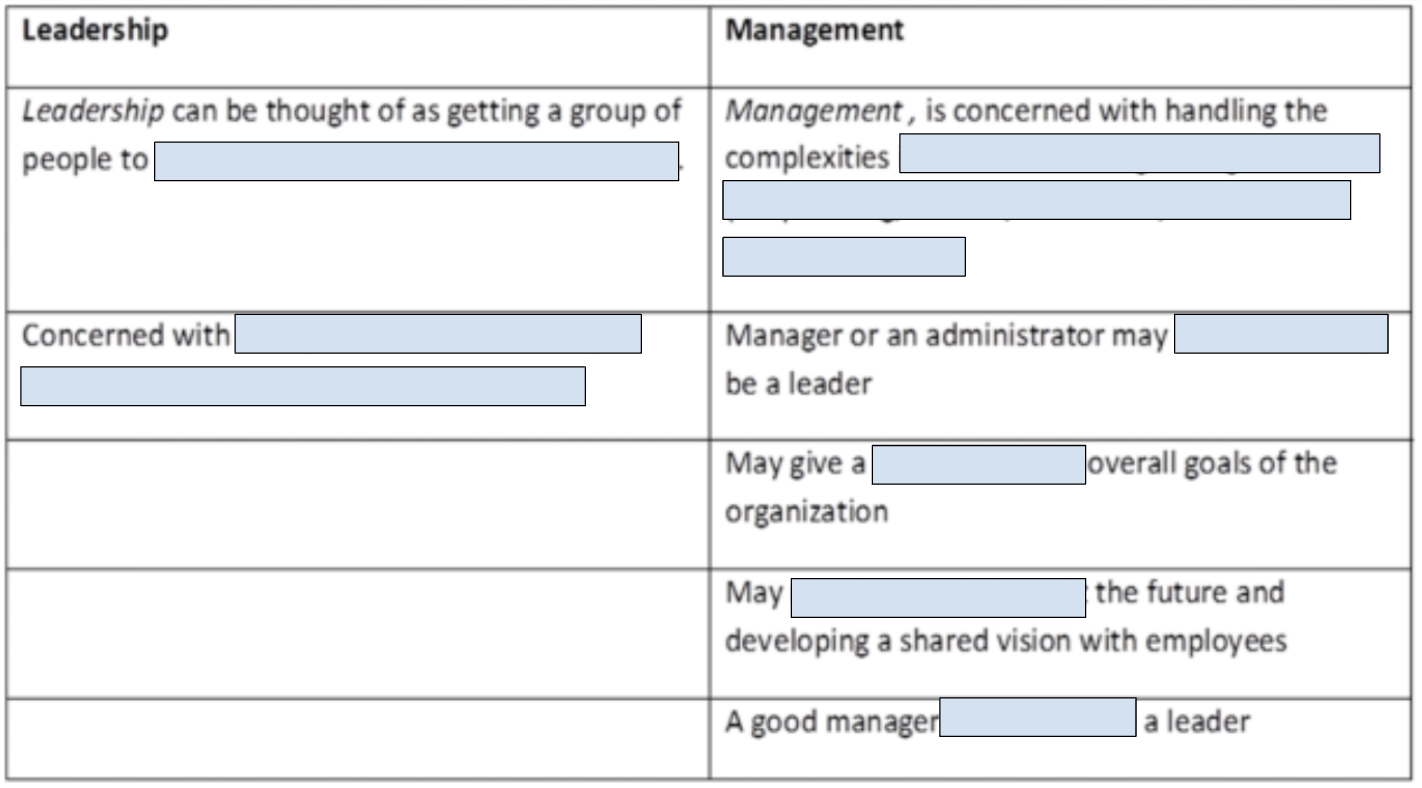
Leadership vs. Management: A good manager ________ be a leader
A good manage also should be a leader